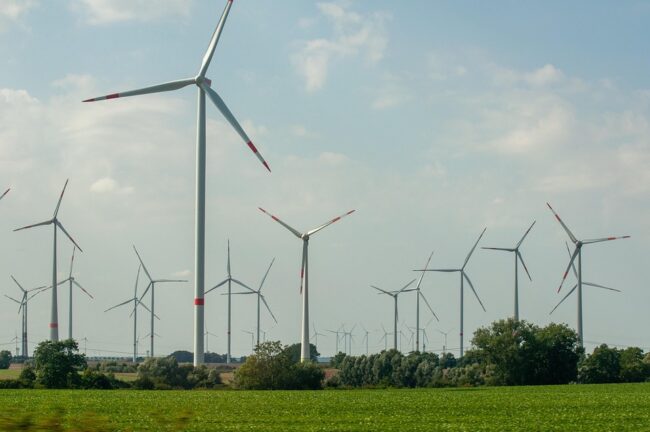The European Commission proposal envisages reducing emissions by 90 percent by 2040. So far, the target seems to command support only from a handful of member states, while others are looking for loopholes–including controversial carbon offsetting through environment-friendly investments in third countries.
Flexibility seems to be the key word in political debates concerning the EU’s 2040 climate target. The plan is to set the bloc’s economic course for the next 15 years, but hardly enjoys universal backing. For some member states, the target is “too ambitious” or “unrealistic”, while others are seeking indirect ways to weaken it.
Commission plans to unveil details of the 2040 proposal on July 2nd. So far, only six countries have voiced an unconditional “yes” (Denmark, Finland, Luxembourg, Netherlands, Slovenia, Spain), while three member states remain sceptical (Czechia, Italy, and Poland). Most of the others, including heavyweights France and Germany, support the plan “with conditions” or are still clarifying their positions.
Rising social inequalities as a risk
Scientific research suggests that the ambition to reduce greenhouse gas emissions by 90 percent by 2040 compared to 1990 levels is technically realistic. It would, however, require significant efforts from policymakers, industry, investors, and civil society. The Brussels-base think-tank Bruegel has published a comprehensive report identifying four possible risks that could derail the path to 2040 climate targets, including “exacerbating inequality”. As some of the measures leading towards the 2040 target can be costly, the paper calls for “adopting inclusive strategies that protect vulnerable citizens” in order to garner society-wide backing.
We need to be ambitious, but it needs to benefit the economy and the people. – Krzysztof Bolesta, Polish Minister for Climate and Environment
Fears that ambitious climate targets could endanger social cohesion and hamper economic development are at the core of sceptical positions. “We need to be ambitious, but it needs to benefit the economy and the people,” said Krzysztof Bolesta, Polish Minister for Climate and Environment. Czechia and several other member states voice similar concerns.
Scientists: Do not look for loopholes
In a recent report, the European Scientific Advisory Board on Climate Change (ESABCC) calls on the European Union to maintain high climate ambition and warns against including international carbon offsets into the target. Such a scheme would allow member states to fund emissions-cutting projects (like wind or solar farms) in non-EU countries, deducting the resulting CO2 cuts from their own tally.
Most international offsets aren’t worth the paper they’re written on and have done nothing to cut emissions. – Michael Sicaud-Clyet, climate governance policy officer at WWF European Policy Office
Ottmar Edenhofer, chair of the ESABCC, recently said that using carbon credits to account for part of the reduction would pose a “huge risk” and make the target less credible. Others go even further. “The evidence is clear: most international offsets aren’t worth the paper they’re written on and have done nothing to cut emissions,” said Michael Sicaud-Clyet, climate governance policy officer at the WWF European Policy Office.
The effort to remove international carbon offsets from the 2040 climate plan may, however, face an uphill battle. Their inclusion has recently gained support from EU Climate Commissioner Wopke Hoekstra (EPP/NL). In Germany, the ruling coalition has made it clear that it would back the target only if up to three percent is allowed to come from foreign offsets.











